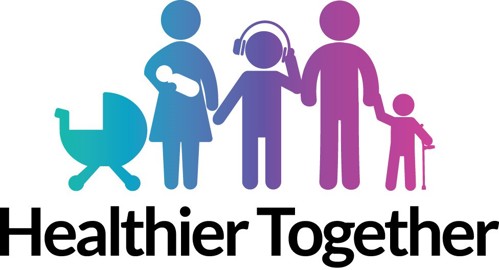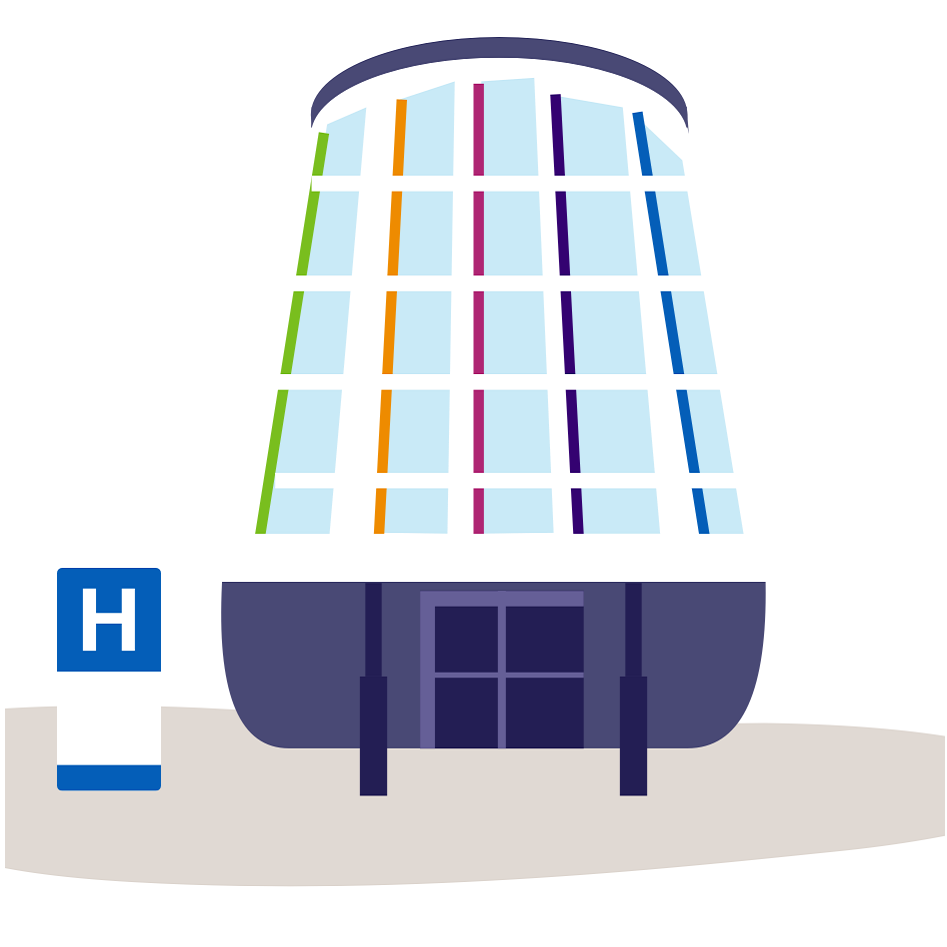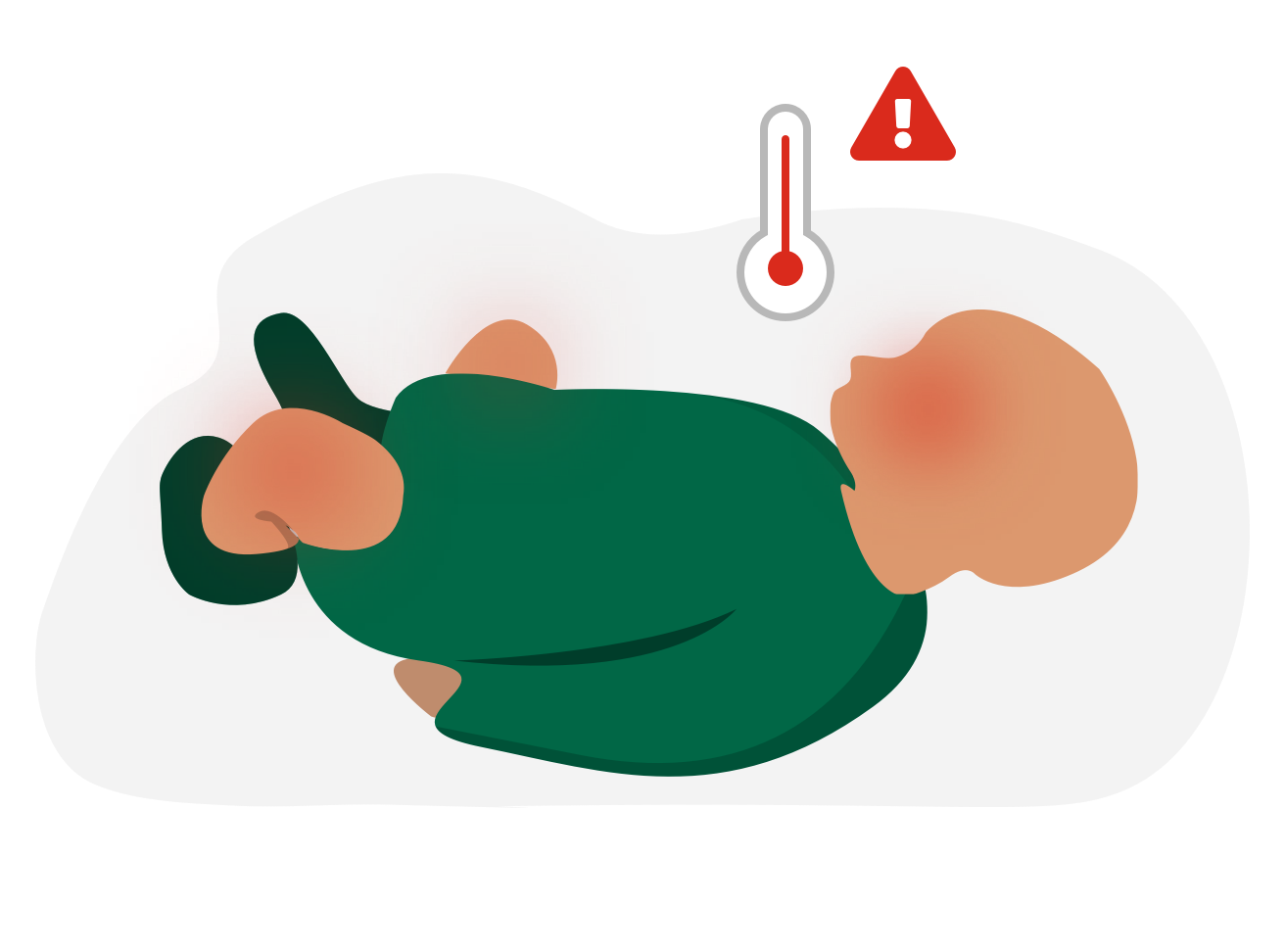Advice for parents and carers of children younger than 5 years
  |
|
If your child has any of these signs:
- Your child is pale, mottled (blotchy) skin or feels cold to touch
- Your child has blue lips
- Your child is finding it very hard to breathe – your child is grunting, or your child is too breathless to talk, eat or drink
- Your child has a fit or seizure
- Your child is not responding to you, your child is hard to wake up or your child cannot stay awake
- Your child has a weak, high-pitched or constant cry
- Your child has a rash that does not go away when you press on it (see 'The Glass Test’ below)
- Your child has a severe headache that doesn’t go away, your child has neck stiffness (doesn’t want to move their head) and, or your child has a bulging ‘soft spot’
- Your child is under 3 months of age with a fever of 38°C or above (unless they have had their immunisations in the last 48 hours and they have no other red or amber features)
|
You need help now.
Go to the nearest Hospital Emergency Department or phone 999
|
  |
|
If your child has any of these signs:
- Your child is finding it hard to breathe - you can see their ribs or tummy moving while they are breathing.
- Your child has signs of dehydration including: sunken eyes, dry mouth, no tears when crying or has not passed urine (had a wee) for 12 hours. In babies the ‘soft spot’ on their head may be sunken
- Your child has swelling of an arm or leg or joint
- Your child finds it too painful to stand up on their own
- Your child is drowsy (very sleepy), your child does not want to play or is irritable – especially if your child is still like this after their fever settles
- Your child is shivering a lot or has muscle pain.
- Your child has a fever of 38.0°C or above for more than 5 days
- Your child is 3-6 months of age with a fever of 39°C or above
- Your child was starting to improve, and the fever settled, but the fever returns within the same illness
- Your child has a fever within 2 days of stopping antibiotics
- Your child seems to be getting worse, or you are worried
|
You should speak to a doctor or nurse today.
Call your GP surgery or call NHS 24 - dial 111
|
  |
|
If your child has none of the above signs
|
Self care
You can keep looking after your child at home. If you are still concerned call NHS 24 – dial 111
|
Content adapted with permission from the what0-18.nhs.uk resource produced by the Healthier Together initiative






